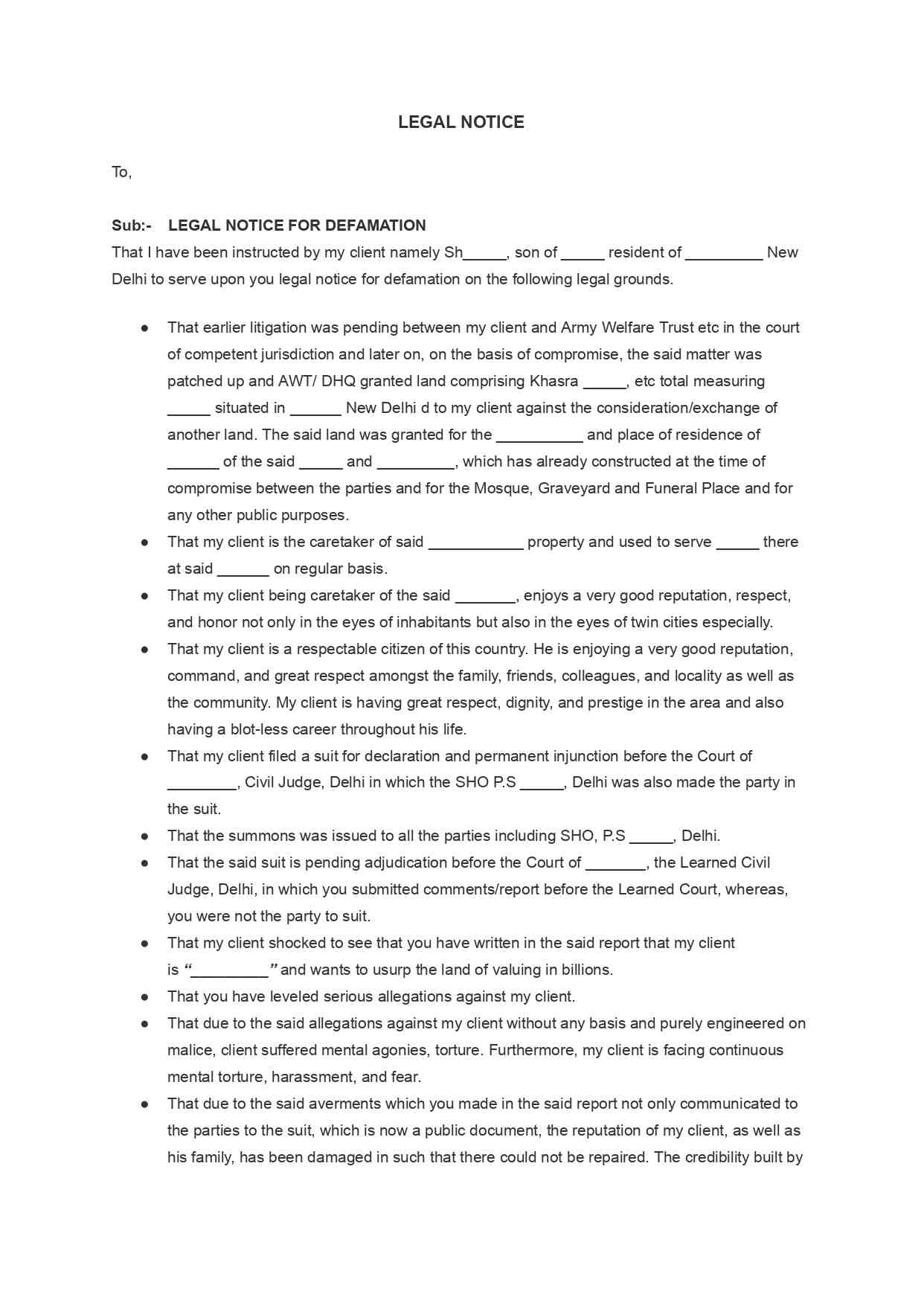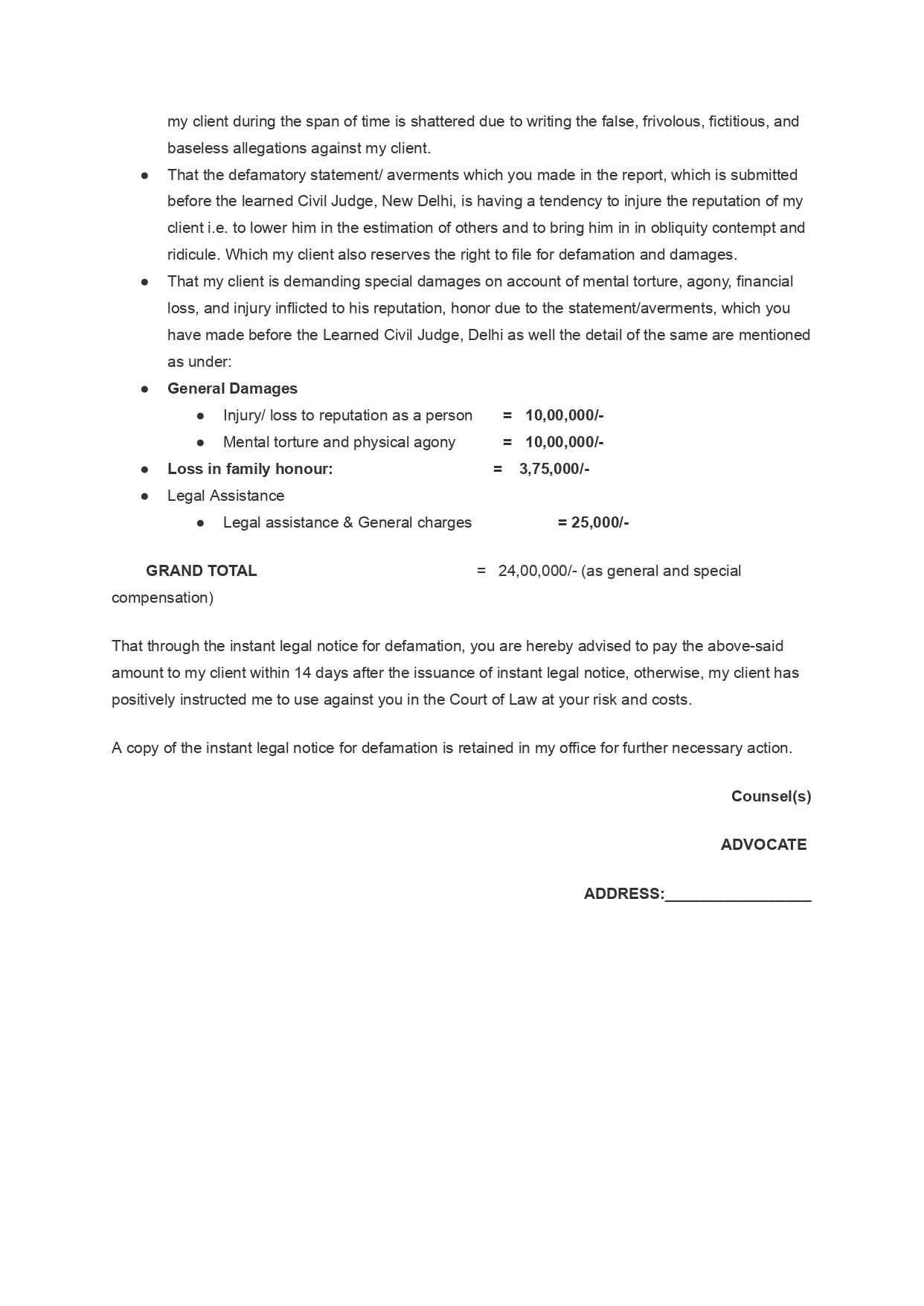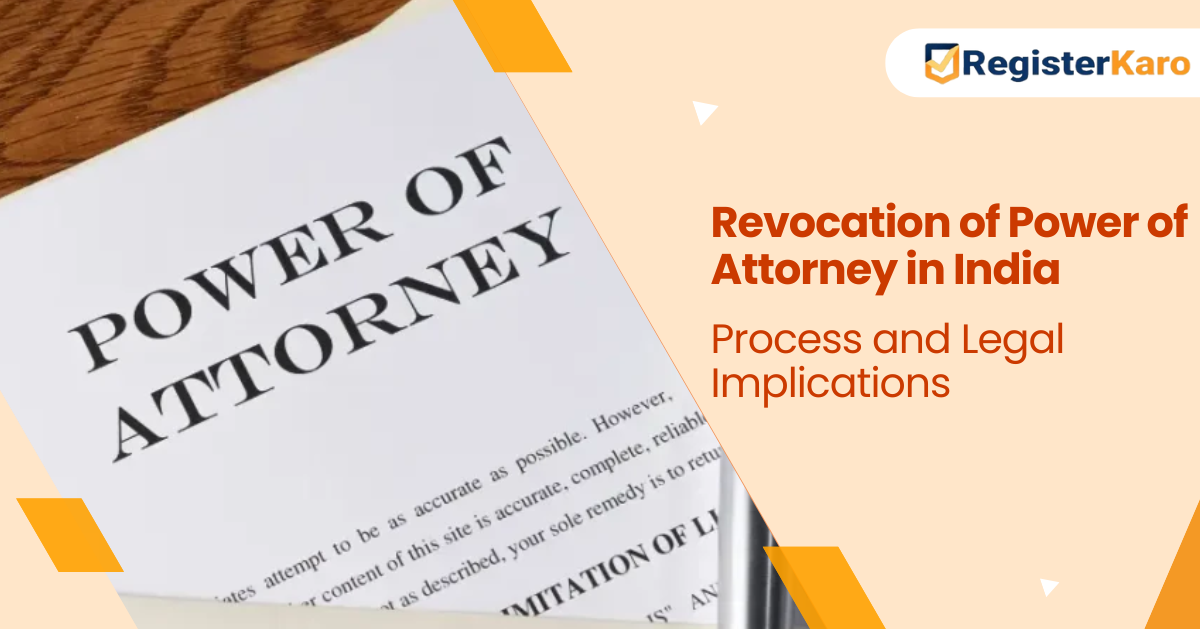Have you ever experienced the damage of false accusations? When someone makes untrue statements about you that harm you and your business's reputation, it’s not just upsetting; it's often illegal. This is known as defamation. In India, you have the right to protect your name from such harmful and baseless attacks.
One of the first effective steps you can take is to send a legal notice for defamation. A legal notice for defamation is a formal, written document sent by the person who has been defamed (the victim) to the person who made the defamatory statements (the alleged defamer). It is usually drafted by a lawyer.
This notice is the first official step in the legal process. It clearly states that the recipient has made false and damaging statements, and it demands certain actions to rectify the situation. It is a warning that if the demands are not met, you will take the matter to court.
What is Defamation?
Defamation refers to the act of making a false statement about someone that harms their reputation. It is a legal means of protecting your good name from unjust harm.
For a statement to qualify as defamatory, it must meet the following essential criteria:
- The Statement Must Be False: Truth is the strongest defense against defamation. If a statement is true, it cannot be defamatory, no matter how damaging it seems.Also, opinions and fair criticism usually don’t count as defamation. For example, saying "I didn’t like the food at that restaurant" is a personal opinion, not defamation. But saying “That restaurant serves rotten food” without proof could be defamatory if it’s false.
- The Statement Must Be “Published”: The term "published" goes beyond just printing in newspapers. It means the statement was communicated to at least one other person, whether spoken, posted on social media, sent via email, or even shared in a WhatsApp chat.
- The Statement Must Harm Reputation: The false statement must damage the individual’s reputation in the eyes of others. It could cause people to think less of them, ridicule them, or avoid them.
Consider this example: A local baker is falsely accused by a competitor of using expired ingredients in his cakes. The rival posts this false claim in a popular local food group on Facebook. This is a clear case of defamation. The statement is false, it was published to a wide audience, and it has harmed the baker’s business and reputation.
Why and When to Send a Legal Notice?
Sending a legal notice is often a very effective strategy. Here’s why and when you should consider it:
- To Warn the Defamer of Legal Action: A legal notice is a formal warning. It tells the other person that their actions have legal consequences. It also shows that you are prepared to take the matter to court if needed. Many times, just receiving a legal notice is enough to make the person stop their false claims and avoid further trouble.
- To Demand a Clear Remedy: The notice allows you to specify exactly what you want. This could be:
- An immediate and unconditional public apology.
- A retraction of the false statements.
- Monetary compensation for the harm caused.
- To Resolve the Issue Without Going to Court: Court cases can be long, expensive, and stressful. A legal notice gives the other party a chance to resolve the issue amicably. Many defamation cases are settled at this stage.
- As a Legal Requirement: In some civil cases, it is necessary to show the court that you tried to settle the matter before filing a lawsuit. The legal notice serves as proof of this attempt.
You should send a notice as soon as you become aware of the defamatory statement and have gathered proof. The longer you wait, the weaker your case might seem.













